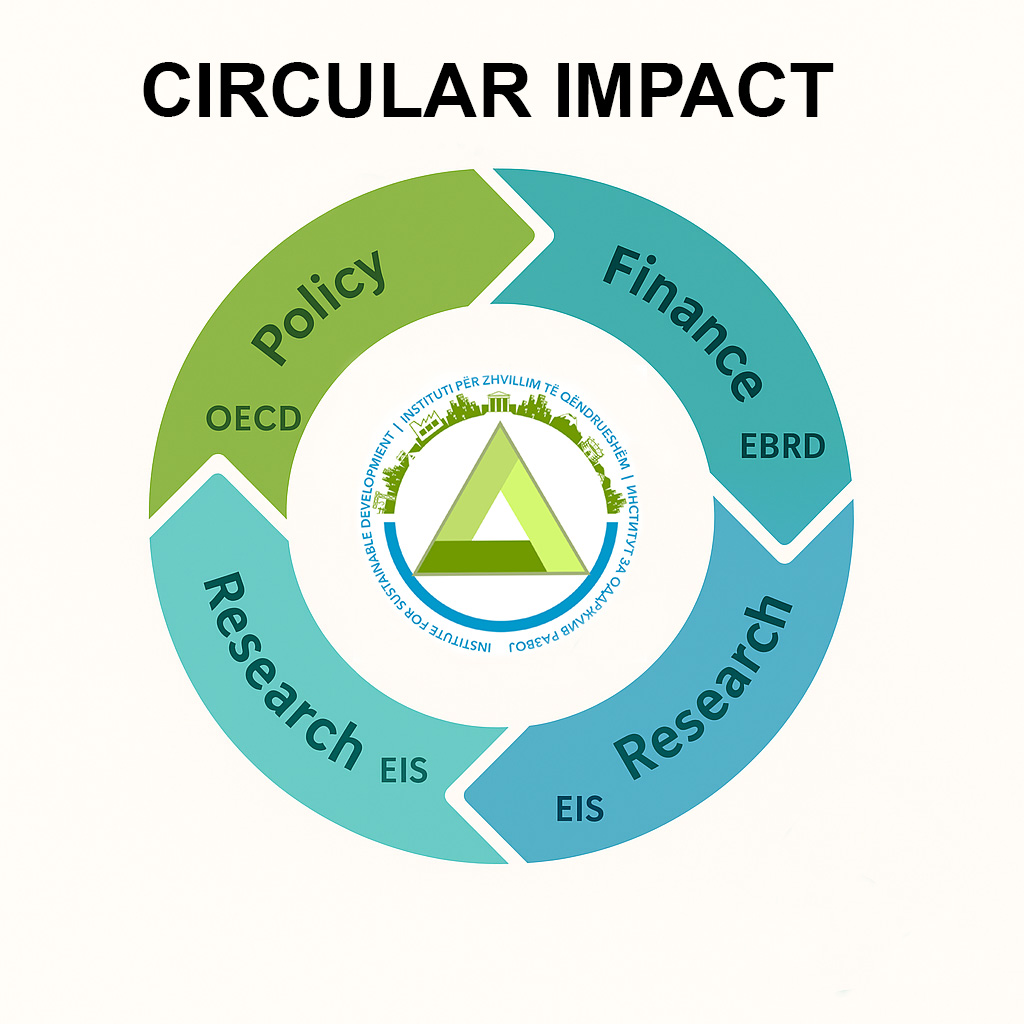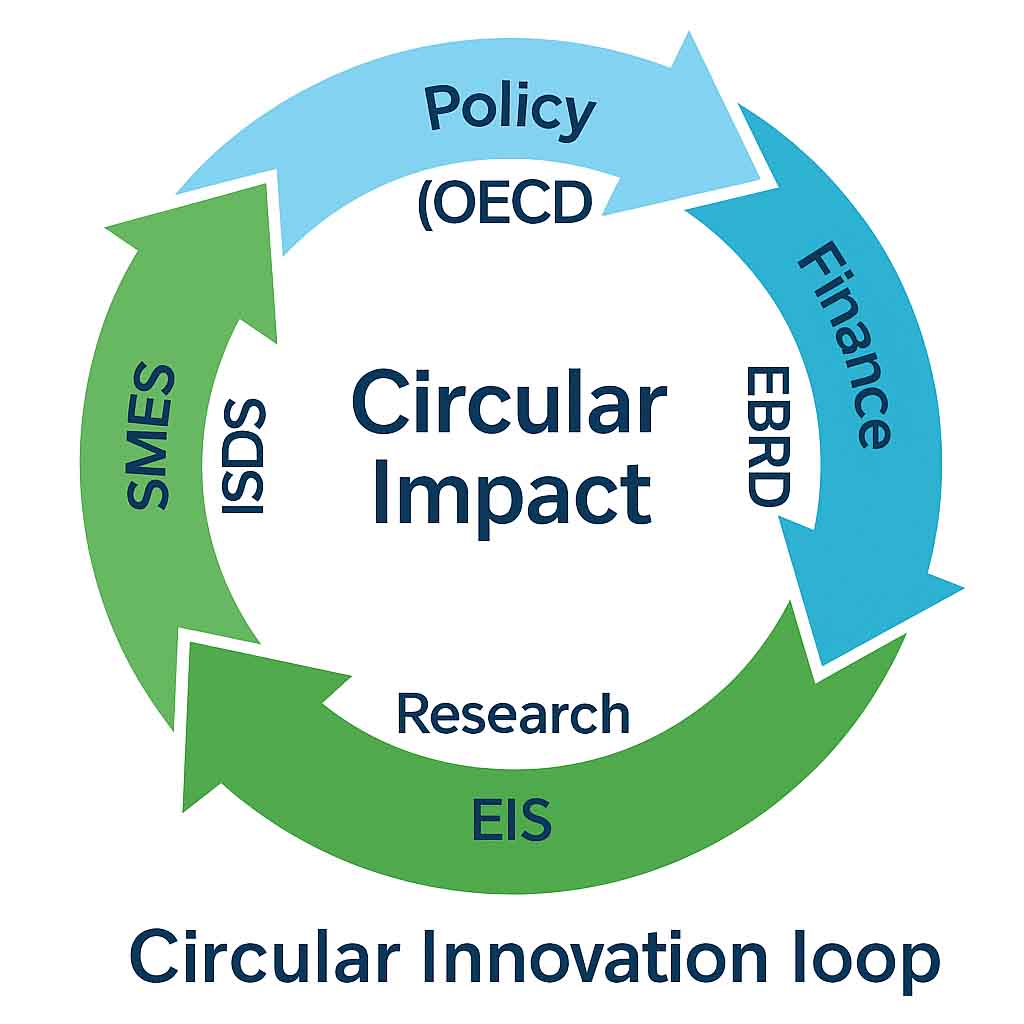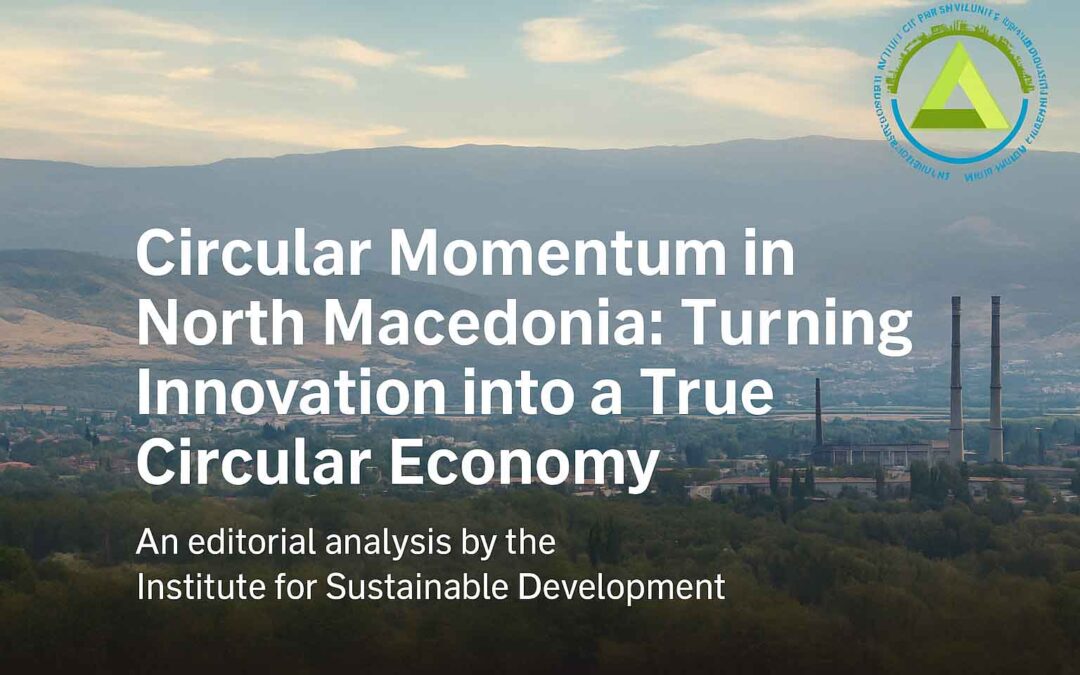An editorial analysis by the Institute for Sustainable Development (ISD)
At the Institute for Sustainable Development (ISD) we have been tracking North Macedonia’s innovation trajectory for years, and today that momentum is beginning to shift from ideas to real impact. Across universities, small enterprises and policy institutions, a new conversation is emerging: the one that links innovation not merely to competitiveness but to circularity, resilience and long-term economic balance.
The European Innovation Scoreboard 2025 ranks North Macedonia as an Emerging Innovator, performing at about 40 percent of the EU average. That position may sound modest, yet it conceals the quiet progress of the country’s small and medium-sized enterprises (SMEs), which are increasingly experimenting with process innovation and sustainability-oriented upgrades.
While R&D is far below European average, the creative problem-solving energy within SMEs has become one of the country’s strengths. These firms, often family run or regionally clustered, are adapting circular approaches without repair, reuse, remanufacturing or resource sharing. What is missing is a bridge between this entrepreneurial instinct and institutional support.
The bridge is taking shape through A Roadmap towards Circular Economy of North Macedonia, a detailed policy framework developed by the OECD as a tailored contribution to advance North Macedonia’s sustainable development (OECD report).
The roadmap highlights key sectors, starting from textiles and construction to biomass, food and metallurgy. It puts forward more than 40 practical recommendations, including incentives to reduce waste, stronger producer responsibility and better systems to track progress beyond just recycling rates.
For the Institute for Sustainable Development, this roadmap is a turning point. It shifts the circular economy from being just a good idea to something real and actionable. The challenge now isn’t about raising awareness, it’s about making it happen.

Financing is already there, “no excuses” for the government!
If policy provides the scaffolding, finance must provide the engine. That engine is beginning to hum thanks to a contribution by the European Bank for Reconstruction and Development (EBRD), which in 2025 launched a €377 million programme to help SMEs in the Western Balkans digitalize, automate, and adopt green technologies.
ISD analysis shows that such initiatives could be transformative if they embed circular-economy criteria—durability, repairability, take-back schemes—into loan conditions. The result would be twofold: greater access to capital and stronger accountability for environmental outcomes.
Our researchers emphasize that the circular transition will not succeed through one-off grants alone. It requires continuous flows of blended finance, pairing concessional funds with private capital, and a regulatory environment that rewards closed-loop business models.
The Human factor: research and collaboration
The country’s research capacity, though limited in resources, has an untapped potential for applied innovation. North Macedonia’s universities produce skilled engineers and environmental scientists, yet collaboration between academia and industry remains sporadic.
As the European Innovation Scoreboard repeatedly notes, weak university-business linkages hinder innovation diffusion. ISD advocates for “circular vouchers” that incentivize SMEs to partner with research labs on eco-design, life-cycle analysis, and materials recovery. Knowledge exchange is the currency of circularity; without it, innovation risks staying locked within reports and prototypes.
Nowhere is the need for transformation more urgent than in waste management. Over 99 percent of municipal waste still ends up in landfills, a figure that symbolizes both a challenge and an opportunity. Turning that statistic around will demand coordinated action—from local governments enforcing separation at source, to SMEs converting by-products into new inputs, to consumers shifting habits.

Circularity is not an abstract goal—it is a daily logistics system, an economic model, and a mindset. Institute for Sustainable Development sees convergence forming around three complementary pillars:
- Policy direction through the OECD’s roadmap, offering the strategic framework for national coordination.
- Financial mobilisation via the EBRD’s Western Balkans initiative, providing capital and technical assistance for green and circular investment.
- Performance benchmarking through the European Innovation Scoreboard, which helps track progress and identify gaps across the innovation system.
Together, these contributions lay the foundation for a sustainable economic transition. North Macedonia stands at a point where modest innovation momentum can translate into a circular breakthrough if policy, finance and research act jointly. We believe the circular economy is not merely an environmental necessity; it is an innovation opportunity. The key lies in execution—linking the vision of policymakers, the creativity of researchers and the pragmatism of entrepreneurs into a single loop of value creation.
“This analysis is the copyrighted position of the Institute for Sustainable Development (ISD) and reflects the independent views of the NGO. It is not affiliated with, endorsed by, or representing any political party, government, state agency, or directorate.”

